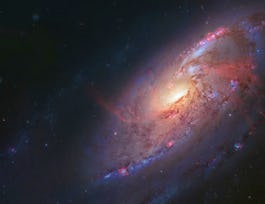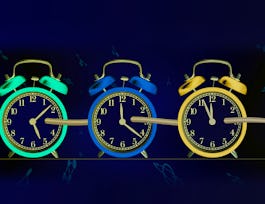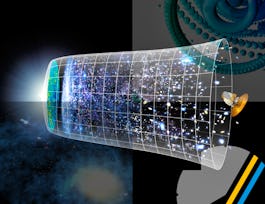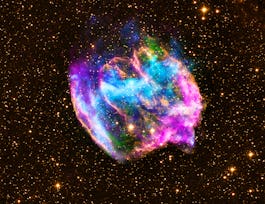What is a black hole? Do they really exist? How do they form? How are they related
to stars? What would happen if you fell into one? How do you see a black hole if they emit no light? What’s the difference between a black hole and a really dark star? Could a particle accelerator create a black hole? Can a black hole also be a worm hole or a time machine? In Astro 101: Black Holes, you will explore the concepts behind black holes. Using the theme of black holes, you will learn the basic ideas of astronomy, relativity, and quantum physics. After completing this course, you will be able to: • Describe the essential properties of black holes. • Explain recent black hole research using plain language and appropriate analogies. • Compare black holes in popular culture to modern physics to distinguish science fact from science fiction. • Describe the application of fundamental physical concepts including gravity, special and general relativity, and quantum mechanics to reported scientific observations. • Recognize different types of stars and distinguish which stars can potentially become black holes. • Differentiate types of black holes and classify each type as observed or theoretical. • Characterize formation theories associated with each type of black hole. • Identify different ways of detecting black holes, and appropriate technologies associated with each detection method. • Summarize the puzzles facing black hole researchers in modern science.



















